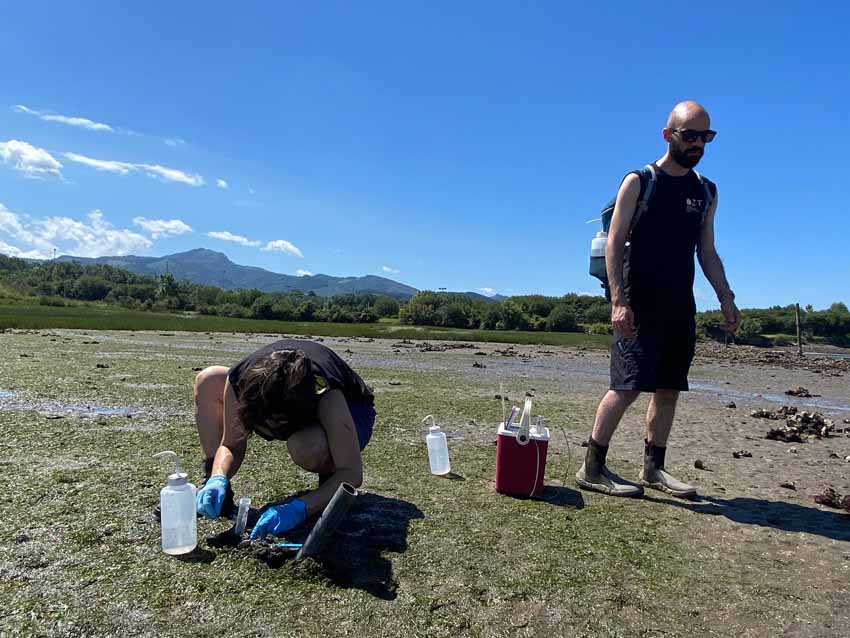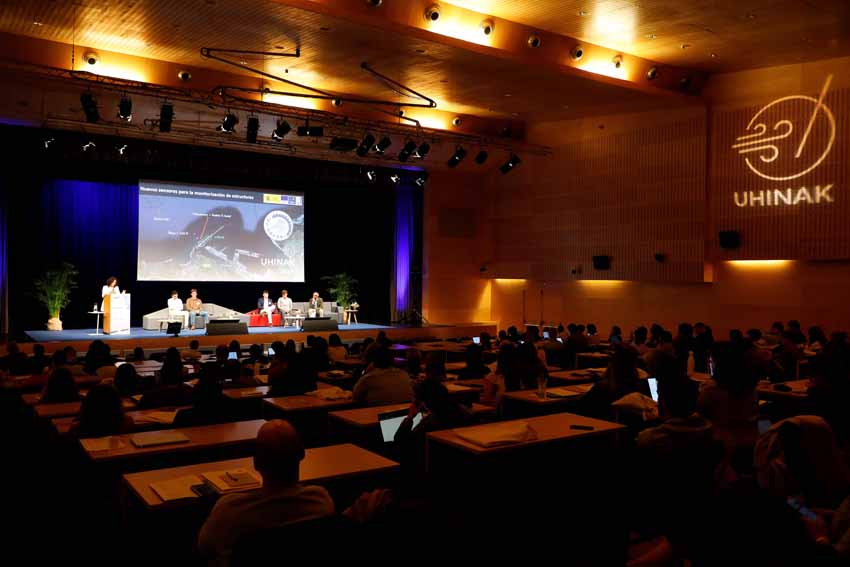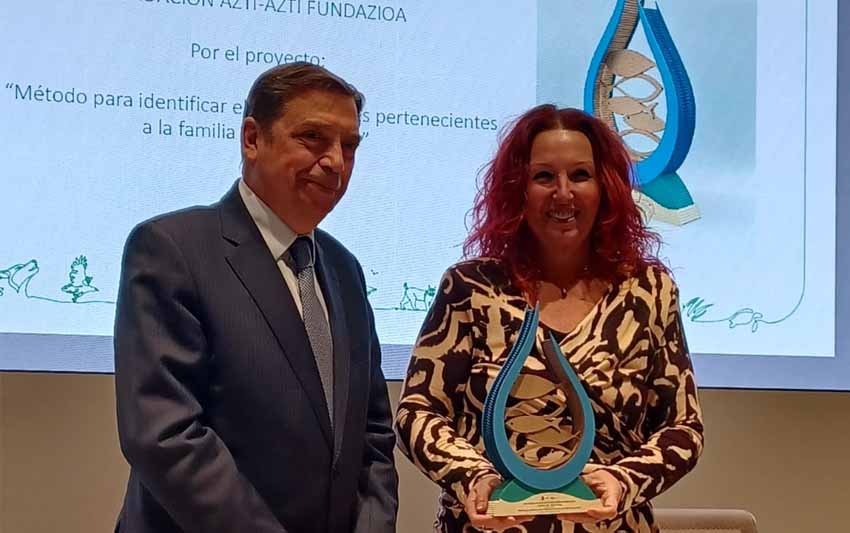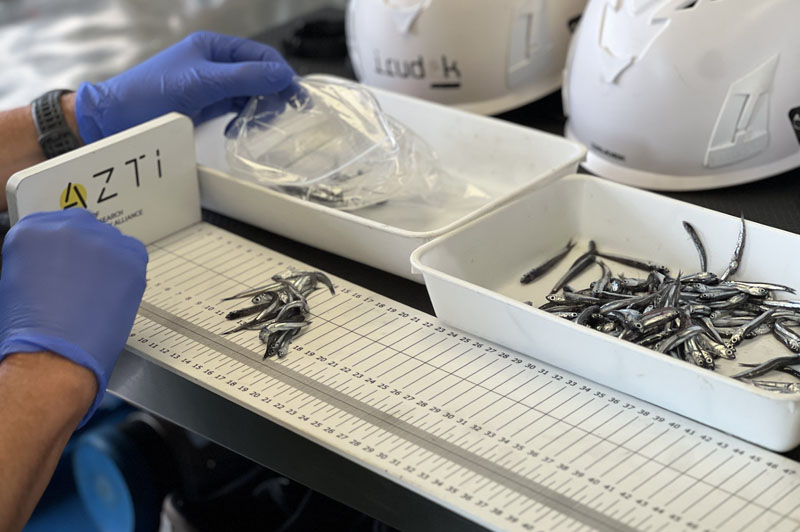On research excellence at AZTI
Últimas noticias
A pioneering genetic catalogue reveals hidden biodiversity in Basque estuary sediments
Uhinak Technical Committee Sets the Key Points for the 7th International Congress on Climate Change and the Coast
“We fishermen are the ones who earn the least”
XABIER IRIGOIEN. Scientific Director. AZTI
Research is the key engine for the progress of societies and therefore states invest significant amounts of resources to fund it. However, this is a long-term investment, where measuring the return is complicated and to monitor the progress of research different indicators have been proposed.
This kind of indicators are subject of a hot debate as they do not consider the unpredictability or non-linearity of scientific progress. Knowledge accumulates in a progressive way, but sudden jumps in knowledge may happen anywhere and can affect unexpected fields of science, and hence technology. Those developing optics for navigation could not predict that the transistor would result in the GPS and make sextants obsolete. However, the reality is that such jumps most often occur at the best institutes as they usually accumulate both knowledge and talent.
Thus, although assuming the limitations, benchmarking the quality of the science produced by research institutes in their specialities is useful for the institutes themselves to evaluate the yield of the effort. At AZTI we use SciVal to evaluate our performance in terms of scientific production (scholar output) and impact of our research (Field weighted impact). We benchmark in relation to other institutes in our area of expertise (Fig 1) and the Basque Country research system (Fig 2).
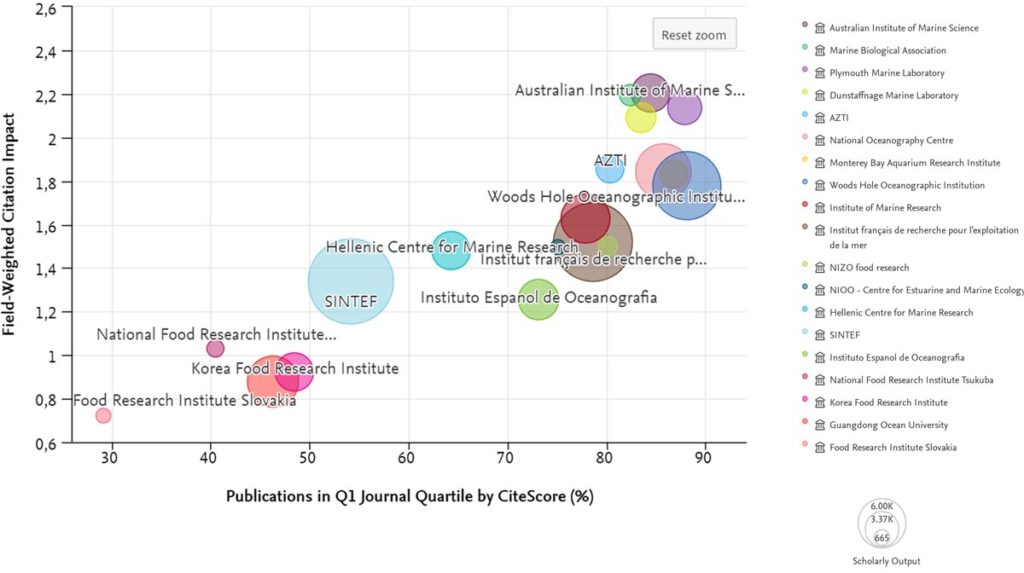
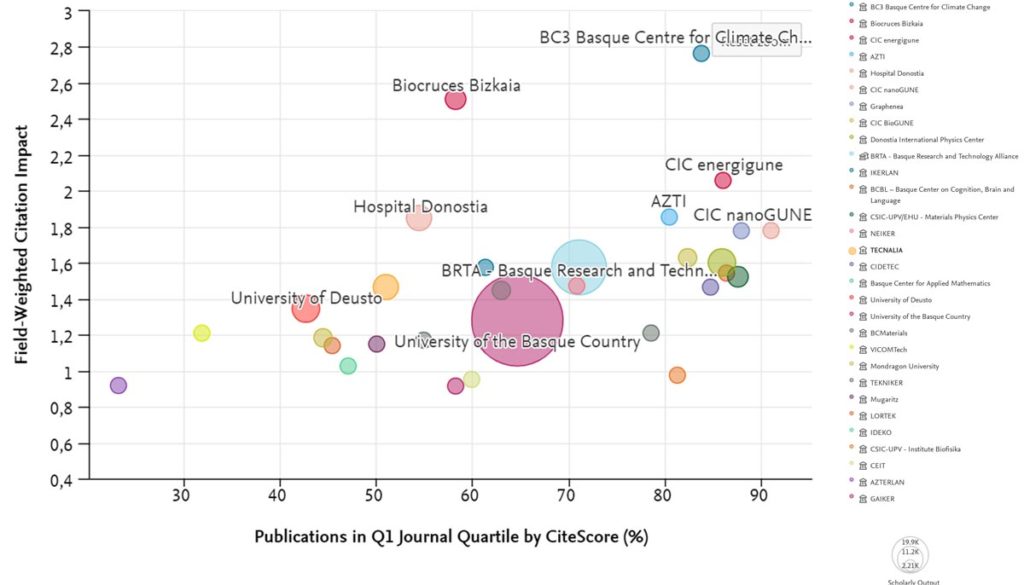
We observe that although being a small institute, with a limited total output, AZTI is both globally and locally very well positioned in terms of the impact of our work (how many times our paper are cited in comparison to other papers in the field). Our scientific production is at the same level of impact than that of internationally renowned organisations such as Woods Hole. We are proud to observe that in some of our areas of expertise AZTI is between the top institutes in the world. As an example, for the period 2015-2020 and the topic cluster fisheries (Topic Cluster TC.63 in SciVal), AZTI is 55 in the world in terms of scholarly output and 17 in terms of weighted citation impact. Going to specific topics such as fisheries, fishing mortality and fish communities (Topic T.19918 in Sci val) AZTI is 11th in the world in scholar output and more strikingly for a relatively small institute, 4th in the world in scholar output in the topic of Marine Spatial Planning; Ecosystem-Based Management; Marine Strategy Framework Directive (Topic T.13736), just behind research organisations such as Wageningen University & Research, Hull University and NOAA.
